| |
Welcome to the fourth PRONIA newsletter! The PRONIA team at the Melbourne Neuropsychiatry Centre (MNC) in Melbourne, Australia, have put the current newsletter items together, and we thank everyone for their timely contributions. The purpose of these yearly newsletters is to introduce you to the PRONIA project, to keep you updated with progress, to identify plans for the future, and to provide information about the happenings at the various member sites. The newsletter also reports on the meetings held throughout the previous year, and provides information regarding upcoming events. In addition, each newsletter focuses on one of the PRONIA team sites – this time the team in Melbourne.
Contents
An introduction to the PRONIA project
The PRONIA project is a European Commission funded study with collaborators in the UK, Germany, Italy, Switzerland, Finland and Australia. The purpose of PRONIA is to develop a computerised tool which can predict the onset and course of early psychotic illness. Reliable and broadly accessible prognostic tools will significantly alleviate the burden of psychotic illness by enabling individualised risk prediction, and paving the way to the targeted prevention of psychoses. However, to date no reliable prediction tools have been developed.
Primarily, we are interested in the prediction of frank psychotic illness in individuals who are currently considered to be at risk of developing psychosis. Using a combination of different data types we hope to identify markers of risk which will allow us to predict whether an individual will develop psychosis, as well as which stage of psychotic illness they are currently in, and what their psychosocial outcomes will be.
To achieve this goal, we are collecting information on psychopathology, structural and functional neuroimaging, neuropsychological, metabolic and genomic data, as well as information on other factors that could affect outcome, such as personality, trauma, resilience and coping strategies. We collect this information from four different groups of people aged 16-40 years: those with recent onset psychosis, young people who are at-risk for psychosis, individuals with recent-onset depression, and healthy controls who have never experienced living with a mental illness. We then follow up participants at multiple time points over an 18-month period in order to monitor the development or remission of their symptoms. Finally, the data collected undergoes complex machine learning algorithms in order to develop reliable prediction tools.
The PRONIA consortium comprises 8 academic partners (University of Birmingham, UK, Ludwig Maximilian University Munich, Germany, University of Basel Psychiatric Hospital, Switzerland, University Hospital Cologne, Germany, University of Turku, Finland, University of Udine, Italy, University of Milan, Italy and Melbourne Neuropsychiatry Centre, Australia) and 4 private sector partners (Dynamic Evolution, GE healthcare, GE Global Research, and ARTTIC).
Into the 4th year of PRONIA
PRONIA is now closing its fourth year, with recruitment to the project in the initial PRONIA sites finalising by the end of 2017. Quality assurance processes have commenced, and all the investigators are posing interesting and novel ideas for analyses based on the data. Publications and presentations are being undertaken at a great rate now the dataset is almost complete. The NeuroMiner programme is in its final development phase, with completion predicted for the end of 2017. The PRONIA Summer School held in 2017 upskilled participants in conducting analyses using the programme (see below).
Meetings
2nd PRONIA Summer School in Munich, May 2017
The greatly successful 2nd PRONIA Summer School took place in May 2017 at LMU in Munich. The topic was understanding and conducting machine learning analyses with the tool NeuroMiner that was optimized for PRONIA as part of Work Package 2. Content included daily seminars and semi-structured tutorials with specific teaching aims on each day. On the last day, the participants formed teams to use their knowledge of machine learning methods in NeuroMiner to compete to see who could create the most predictive models for a new dataset. The organisers received excellent feedback and it was a superb machine learning summer school overall. All participants had the opportunity to learn, exchange information, and engage in fruitful discussions.
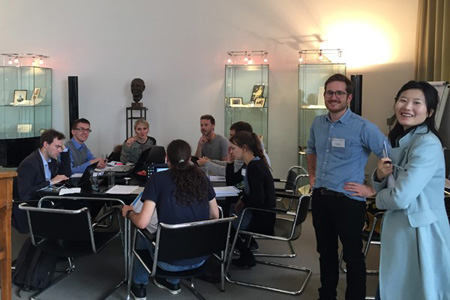
Organisers and participants at the 2nd PRONIA Summer School in Munich, May 2017
1st PRONIA Symposium in Turku, June 2017
The PRONIA group was invited by our partner Prof. Raimo Salokangas for a scientific symposium at University of Turku in Finland, which was held in June 2017. Following the symposium, the PRONIA Steering Committee met in Turku on the 2nd of June. The PRONIA Symposium at Turku University Turun Yliopisto was well attended by students, researchers and doctors, and the group had many fruitful discussions.
Talks at the PRONIA Symposium were given by Prof. Nikolaos Koutsouleris, the Coordinator, from LMU Munich, Prof. Stefan Borgwardt for Psychiatric University Clinics Basel, Prof. Paolo Brambilla from Università degli Studi di Milano, Prof. Eva Meisenzahl-Lechner from University of Düsseldorf, Dr. Marlene Rosen from University Clinics Cologne and Dr. Rachel Upthegrove from the University of Birmingham.
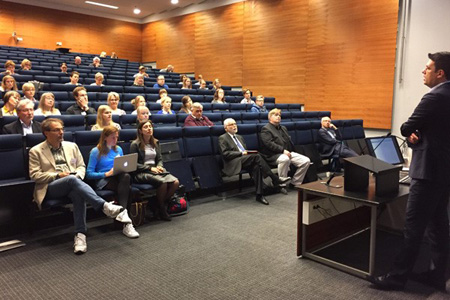
Prof. Nikolaos Koutsouleris presenting at the 1st PRONIA symposium in Turku, June 2017
5th General Annual Meeting in Berlin, October 2017
The PRONIA Consortium met for their 5th General Assembly Meeting in Berlin, right before the WPA World Congress of Psychiatry 2017. The first day involved a productive meeting, where both young researchers as well as senior scientists presented their first results from the study. The second day involved training for the clinical raters by Katie Chisholm from the University of Birmingham and Marlene Rosen from the University Clinics Cologne. Both events resulted in animated discussions and the next steps were planned in detail.
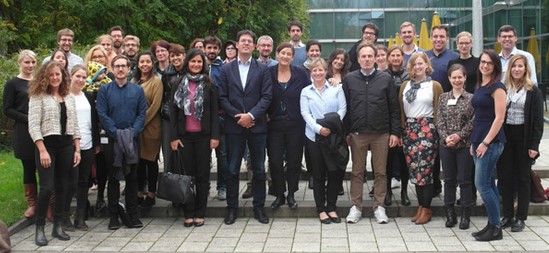
Team members of the PRONIA Consortium at the 5th General Annual Meeting in Berlin, October 2017
Upcoming meetings
- The 6th PRONIA General Assembly Meeting will occur before the WPA meeting in Florence, Italy, on April 3-4, 2018.
- The 11th Steering Committee Meeting will take place in Birmingham, UK, on October 5, 2018.
PRONIA @ WPA 2017
PRONIA Website
Since its release online on 26.02.2014, the PRONIA website (www.pronia.eu) counts 52.116 sessions in 159 countries; in 86 of those countries all over the world we have even had more than ten sessions per country on the PRONIA website. We update our website on a regular basis and look forward to attracting more visitors to our pages, which offer information for scientists and professionals as well as help-seekers and relatives.
Since 2017, we are also hosting NeuroMiner on the PRONIA website, the machine learning software developed by our Coordinator Prof. Nikolaos Koutsouleris. There are NeuroMiner Downloads for Windows, Linux and the NeuroMiner Manual is also available.
Looking forward
Next steps:
- Recruitment for the initial PRONIA sites will be completed by 31 December 2017
- Quality control for data has commenced
- Analyses and presentations are continuing
PRONIA@
PRONIA’s consortium consists of 12 partners with over 100 researchers and clinicians directly involved. These individuals come from a range of diverse backgrounds, including clinical psychology, neurology, radiology, bioengineering and psychiatry. Alongside our work on PRONIA, consortium members are working on other prestigious research projects, and presenting at conferences both nationally and internationally. Listed below are a few of our consortium members’ most recent achievements.
University of Basel Psychiatric Hospital (UPK)
Following Prof Riecher’s retirement from her clinical duties, the unit supporting PRONIA in Basel has undergone some restructuring. The new Early Intervention Clinic of the University Psychiatric Clinics Basel, led by Dr Christina Andreou, is still dedicated to the early detection of psychotic disorders; it features an extended age range for referrals (from 15 years) and an increased focus on intervention and treatment. The transition is not expected to affect PRONIA recruitment and assessments in Basel, as most team members were involved in PRONIA previously.
Prof Stefan Borgwardt and his research group published several papers on magnetic resonance imaging in psychosis (http://bjp.rcpsych.org/content/211/4/192, http://jpn.ca/42-5-307/, http://jpn.ca/vol41-issue6/41-6-367/, http://www.nature.com/articles/npjschz201633).
Laura Egloff (PhD candidate) had two oral presentations at congresses this year. At the 25th Congress of the European Psychiatric Association (EPA) about “Verbal learning and memory in at-risk mental state and first episode psychosis patients and their correlates to brain structural alterations” (Abstract O097) and at the 2nd Women’s Mental Health Congress about “Sex differences in brain morphology in emerging psychosis”.
Laura, who has been working for PRONIA since October 2014, will complete her assignment with PRONIA in December 2017 and pursue new challenges. We are very thankful for all her efforts towards PRONIA and wish her all the best for her future.
Dr Fabienne Harrisberger will be on maternity leave until the end of 2017.
We gladly welcome Dr Christina Andreou, MSc Letizia Leanza, MSc Sonja Widmayer and MSc Amatya Mackintosh to the team and are looking forward to working with them.
University of Cologne
At the DGPPN congress in Berlin, 23-26 November 2016, Marlene Rosen presented a poster entitled “Differences of functioning domains in clinical high risk subjects, recent onset psychosis and recent onset depression patients – first results from the PRONIA study”. Further, Dr. Theresa Haidl had a poster presentation about the bullying scale which was developed in the framework of PRONIA, and won the poster award.
At the 1st Cologne Neuroscience Day, 17 March 2017, Mauro Seves, Dr. Theresa Haidl and Marlene Rosen presented preliminary results from PRONIA regarding functioning, bullying, and resilience.
At the WPA Congress in Berlin (8-12 October 2017), Mauro Seves presented a poster entitled “CHR Risk Symptoms in the PRONIA sample – Preliminary results from the PRONIA study” and Marlene Rosen one entitled “Resilience and functioning in Clinical High Risk Subjects, Recent Onset Psychosis and Recent Onset Depression Patients – First results from PRONIA”. Dr. Theresa Haidl gave an oral presentation entitled “Social Phobia in clinical-high-risk for psychosis individuals – First Results of PRONIA”.
Prof Stefan Ruhrmann and his colleagues published several papers on psychosis and clinical high risk states for psychosis:
https://www.ncbi.nlm.nih.gov/pubmed/27583768
https://www.ncbi.nlm.nih.gov/pubmed/26979398
https://www.ncbi.nlm.nih.gov/pubmed/28889802
https://www.ncbi.nlm.nih.gov/pubmed/28054132
Unexpectedly and unfortunately, Prof Stephan Ruhrmann left the department of psychiatry and psychotherapy at the University Hospital in Cologne at the beginning of September 2017. This is an immense loss for the department in Cologne and we will miss his expertise. Marlene Rosen and Dr. Theresa Haidl will temporarily take the lead for the local PRONIA site in Cologne, as well as for workpackage 1.
Dr. Theresa Haidl is currently working on an analysis regarding “Identification of neuroanatomical and -functional surrogate markers of childhood trauma across and within diagnostic groups” and Marlene Rosen on an analysis about “Single-subject prediction of functional outcomes across diagnostic groups using clinical data”. They look forward to being able to report results in the next newsletter.
University of Udine and University of Milan
Prof. Franco Fabbro, full professor of Child and Adolescence Neuropsychiatry at the University of Udine, was appointed new Principal Investigator of the team of UniUdine from May 2017. He took over the role after Prof. Paolo Brambilla, P.I. of the group of UniMI and leader of the Workpackage 4, moved to Milan.
The team is now deeply committed in carrying out the analyses for five scientific papers on data from the PRONIA sample, focusing on the neurocognitive predictors of psychopathology and functional outcomes on the environmental risks’ factors and on schizotypy. The preliminary results of these analyses were presented by Dr Carolina Bonivento at the 5th GA Meeting in Berlin this year.
New members @ UniMI
Dr Giuseppe del Vecchio, PhD, PsyD, research fellow.
Ms Francesca Bottinelli, clinical psychologist, research fellow.
Dr Eleonora Maggioni, PhD, biomedical engineer, Postdoctoral researcher.
Dr Letizia Squarcina, PhD, biomedical engineer, Postdoctoral researcher.
Prizes and awards
Dr Eleonora Maggioni
March 2017 - Educational Grant of the World Federation Society for Biological Psychiatry (WFSBP) for the 13th World Congress of Biological Psychiatry, 2017, 18 – 22 June, Copenhagen.
Dr Marco Garzitto
Approved projects: Scientific Institute IRCCS "Eugenio Medea", 2018, TwinAger (Developmental psychopathology in twins and youngs, a multi-modal and multi-source study: Neuroimaging, neuropsychology and gene-environment interaction.)
University of Birmingham
This year we welcomed Dr Rachel Upthegrove as PI at the University of Birmingham, UK. Rachel presented baseline PRONIA data analysis of the Depression group at the GA meeting and WPA XVII world congress of psychiatry in October. Rachel has also recently been elected to the council of the British Association for Psychopharmacology, as a Fellow of the Royal college of Psychiatrists, and been invited to join the editorial board of the British Journal of Psychiatry. Dr Katharine Chisholm (Research Fellow at the University of Birmingham) visited Professor Christos Pantelis’ lab at the Melbourne Neuropsychiatry Centre at the University of Melbourne, developing work on the neural correlates of resilience to mental illness. At the start of November, the research team welcomed Sian Lowri Griffiths who is working as a Research Associate. Lowri has been completing a PhD at the University of Birmingham under the supervision of Professor Stephen Wood and Professor Max Birchwood, and will soon be submitting her thesis on the social cognitive and neurocognitive predictors of functional outcome in first-episode psychosis. Alexandra Stainton (PhD student at the University of Birmingham) has received a travel grant to allow her to attend the World Psychiatric Association’s Thematic Congress, Innovation in Psychiatry: Effective Interventions for Health and Society in Melbourne, Australia in 2018. Previous MRES students Kimberley Griffin and Michael Horwood have also taken up Research Assistant posts on the project. Two of our previous team members, Mirabel Pelton and Chris Day, were successful in applying for PhDs. In addition, this year the Birmingham PRONIA team has welcomed Zoe Morrice, Solin Hamawandy, Aneela Khan, and Amy Murphy (MRES students at the University of Birmingham), and Bhavna Sidhpara (Aston University placement student).
University of Turku
Our team has remained pretty much the same after 2016. Research nurse Akseli Mäkelä returned to his private clinic at the end of 2016 and MD Otto Turtonen was not able to come back in January, so we have been going on with a smaller team. Our research assistant Antti Luutonen left in August 2017 and MD student Mirka Kolkka started as a research assistant in September 2017. Mirka works in PRONIA part-timely since she is pursuing her MD studies in University of Turku. She started her 2nd year this autumn.
Presentations:
1. Sinikka Luutonen: Lapsuuden vastoinkäymiset ja itsetuhoisuus Pronia-potilailla (Childhood adversities and self-destructive behaviour in PRONIA material). 1st June 2017, 1st PRONIA Symposium in Turku.
2. Maria Tikka: Sosiaalinen kognitio psykoosi- ja riskipotilailla (Social cognition in CHR and FEP patients). 1st June 2017, 1st PRONIA Symposium in Turku.
3. Anna Toivonen: Psykoosia sairastavan kiinnittyminen hoitoon (Attachment to treatment in FEP patients). 1st June 2017, 1st PRONIA Symposium in Turku.
4. Tuula Ilonen: Miten riski- ja psykoosipotilaiden neurokognitiiviset häiriöt näkyvät käytännössä? (How neurocognitive symptoms of CHR and FEP patients are manifested in practice). 1st June 2017, 1st PRONIA Symposium in Turku.
Publications:
1. Salokangas RKR, Schultze-Lutter F, Schmidt SJ, Pesonen H, Luutonen S, Patterson P, Graf von Reventlow H, Heinimaa M, From T, Hietala J. Childhood physical abuse and emotional neglect are especially associated with adult mental disorder. Psychol Med 2017 (submitted).
2. Salokangas RKR, Luutonen S, Heinimaa M, From T, Hietala J. Childhood emotional abuse associates with risk of suicide in adulthood. Child Abuse & Neglect 2017 (submitted).
3. Salokangas RKR, From T, Luutonen S, Salokangas HRW, Hietala J. Childhood sexual abuse predicts alcohol problems in females. Psychiatry Res (submitted)
4. Raimo KR Salokangas, Frauke Schultze-Lutter, Jarmo Hietala1, Markus Heinimaa, Tiina From, Tuula Ilonen, Heinrich Graf von Reventlow, Georg Juckel, Don Linszen, Peter Dingemans, Max Birchwood, Paul Patterson, Joachim Klosterkötter, Stephan Ruhrmann and the EPOS group.Childhood adversities predicts persistence of suicidal thoughts differently in female and male clinical high-risk patients to psychosis. In process.
Who are the PRONIA team in Melbourne?
Investigators in Melbourne come from the Melbourne Neuropsychiatry Centre (MNC; lead centre), the Centre for Neural Engineering (CfNE), and Orygen, The National Centre of Excellence in Youth Mental Health. Below are very brief bios of the investigators who have been named on the independent funding application. Funding in Melbourne is provided through Australia’s National Health and Medical Research Council. The Melbourne site is in the process of recruiting and assessing participants as part of the validation arm for PRONIA.
Chief Investigators
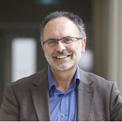 |
Professor Christos Pantelis is an NHMRC Senior Principal Research Fellow, Foundation Professor of Neuropsychiatry and Scientific Director of the Melbourne Neuropsychiatry Centre (MNC) at The University of Melbourne and Melbourne Health. He leads a team of over 60 clinical and research scientists and students that have been undertaking neuroimaging and neuropsychological work in schizophrenia and psychosis, and other psychiatric and neurodegenerative disorders since 1993 in Australia. |
| Professor Patrick McGorry is the Executive Director of Orygen, Professor of Youth Mental Health at The University of Melbourne. His work has played a critical role in the development of safe, effective treatments and innovative research into the needs of young people with emerging mental disorders, notably psychotic and severe mood disorders. He has also played a major part in the transformational reform of mental health services to better serve the needs of vulnerable young people. |
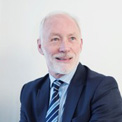 |
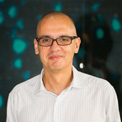 |
Professor Stan Skafidas, from the Department of Electrical and Electronic Engineering, leads the Melbourne School of Engineering's research in nanoelectronics and is the Director of the Centre for Neural Engineering. He is recognised for his vision, leadership and major technical accomplishments in industry, research institutions, academia and international standardisation committees. His research has advanced the disciplines of wireless communications, single chip radars and medical diagnostic systems. |
| Professor Dennis Velakoulis is a consultant neuropsychiatrist and director of the Neuropsychiatry Unit, Royal Melbourne Hospital. He is a previous NHMRC Fellow at the Mental Health Research Institute of Victoria, where he worked in Cognitive Neuropsychiatry and began world-leading research into the volumetric measurement of the hippocampus and other brain regions in schizophrenia. He continues to be involved in research into psychosis, epilepsy, MS, Huntington's disease and early-onset dementia. |
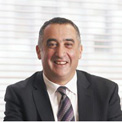 |
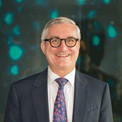 |
Professor Ian Everall has been at the forefront of research into cellular, molecular and genetic changes in the brain in major psychiatric disorders for over twenty years. His area of interest includes psychosis, major depression, bipolar disorder and cognitive impairment, especially when associated with HIV infection and methamphetamine use. Professor Everall is currently working on research into blood based biomarkers to aid in the diagnosis of psychosis and autism spectrum disorder. |
Associate Investigators
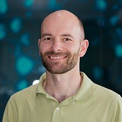 |
Dr Chad Bousman's research focus is on making personalised/precision psychiatry a reality. His studies focus on: (1) Discovery of distinct variation and environmental interaction with genotypic, transcriptomic, and/or proteomic networks/pathways, (2) Development of ‘omic’-based clinical decision-making tools for use in screening, diagnosis, staging, prognosis, and/or treatment of mental illness, and (3) Evaluation of the efficacy/utility of ‘omic’-based decision-making tools in clinical practice. |
| Dr Marc Seal trained as a clinical neuropsychologist and has extensive experience in coordinating neuroimaging investigations of brain development. In 2010 he was appointed Group Leader of the Developmental Imaging research group at the Murdoch Childrens Research Institute. In this role he is responsible for coordinating and facilitating research utilising the Research MRI Scanner and supervises a multidisciplinary team of clinicians, MRI technologists and neuroscientists. |
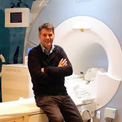 |
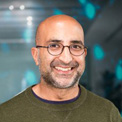 |
Dr Gursharan Chana is a Senior Research Fellow within the Department of Medicine at Royal Melbourne Hospital and Head of the Integrative Biological Psychiatry Laboratory at the Centre for Neural Engineering (CfNE). His current research interests lie in investigating the role of the glutamatergic system and neuroinflammation in the pathophysiology of autism as well as collaborative neural engineering projects at the CfNE involving the incorporation of nanotechnology and electrochemical detection. |
| Professor Barnaby Nelson is a clinical psychologist. At Orygen, he is a Senior Research Fellow and also works clinically at one of Orygen’s headspace centres. His work focuses on identification strategies, prediction of outcome and treatments for young people who are at ultra high risk for psychosis. He has a particular interest in why people on the schizophrenic spectrum disorder deny aspects of their illness to others, the role of stress and trauma in the onset of psychosis and personality and resilience factors. |
 |
Research support staff
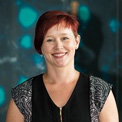 |
Antonia Merritt is an experienced Research Trial Coordinator who has been working at the MNC for over 10 years. Antonia provides high-level administrative support for the PRONIA trial, including maintaining regulatory and ethical documentation, development of recruitment strategies, and training and supervision of researchers undertaking recruitment and assessment of participants. Antonia took over the coordination role from Dr Christina Phassouliotis in mid-2016. |
| Sarah Gale is a clinical psychologist and research assistant working on the PRONIA trial at the MNC. Sarah’s role is to recruit and assess participants in the first-episode psychosis cohort. As part of this role, she liaises closely with researchers at Orygen, The National Centre of Excellence in Youth Mental Health, in addition to liaising with clinical services undertaking the MRI and pathology components. She commenced maternity leave in July 2017, but is expected to return to the role in mid-2018 to finalise participant follow up. |
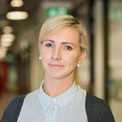 |
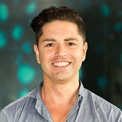 |
Steven Tahtalian is an experienced research coordinator within the MNC who has a proven record of accomplishment of recruitment success coupled with attrition minimisation. Steven has previously worked as a clinical psychologist, and brings to this role exceptional skill in service engagement, time management and data management. Steven took over the role of recruitment and assessment of PRONIA research participants in July 2017 when Sarah Gale commenced maternity leave. |
|
|
|